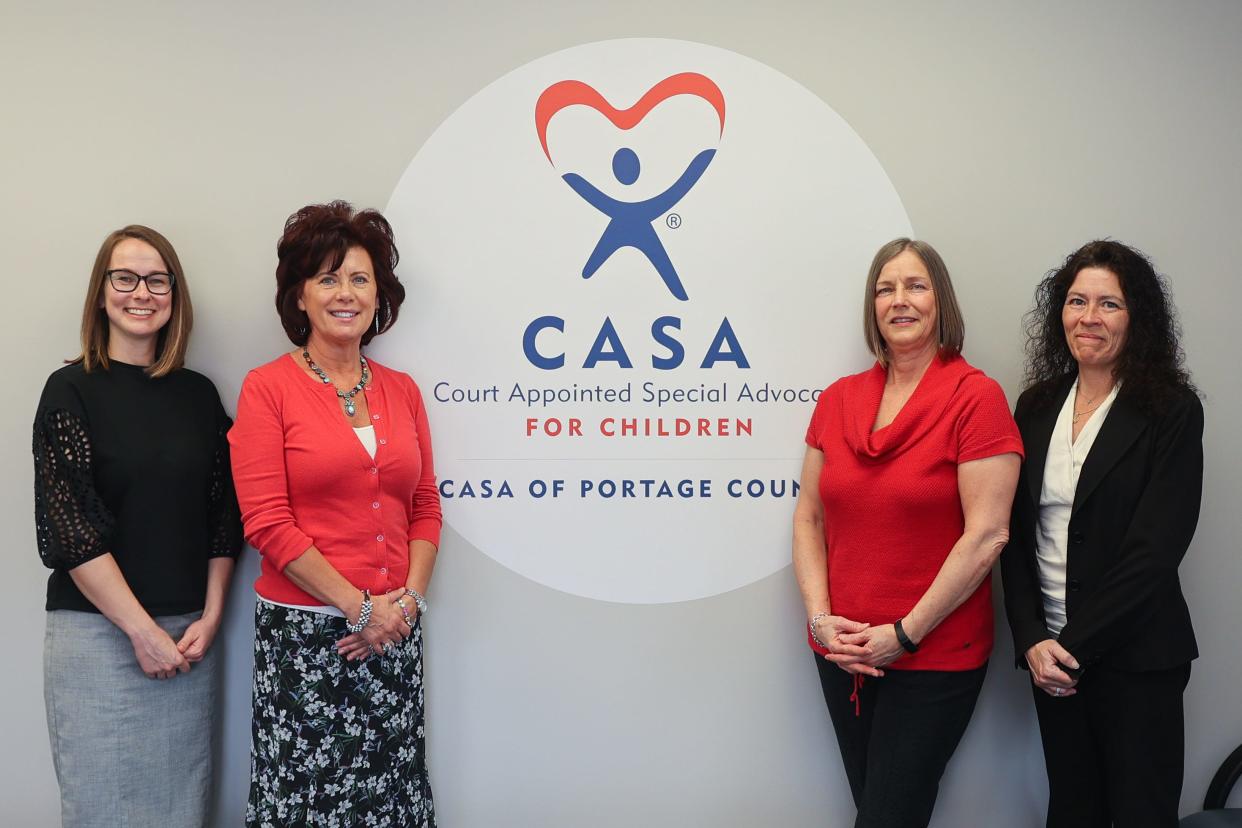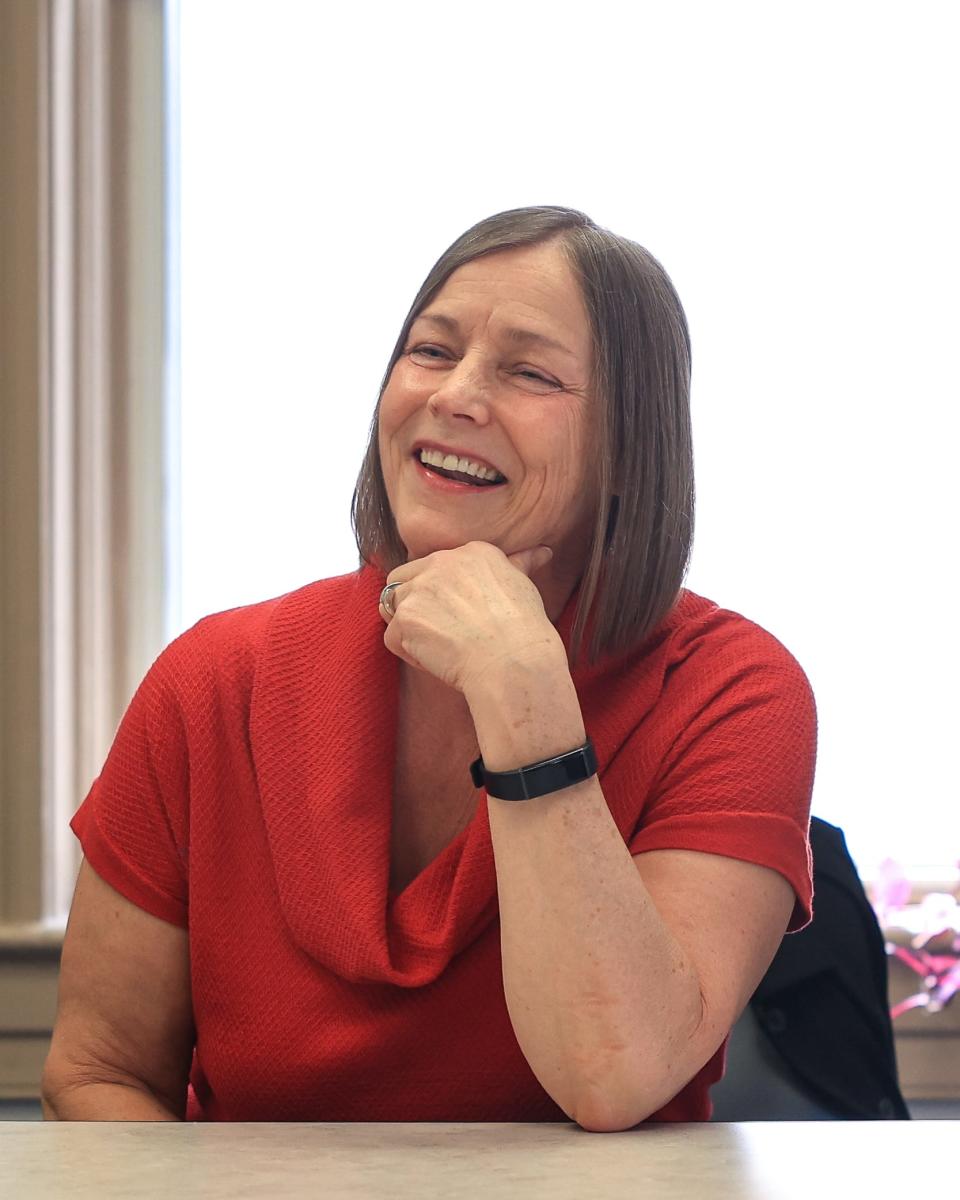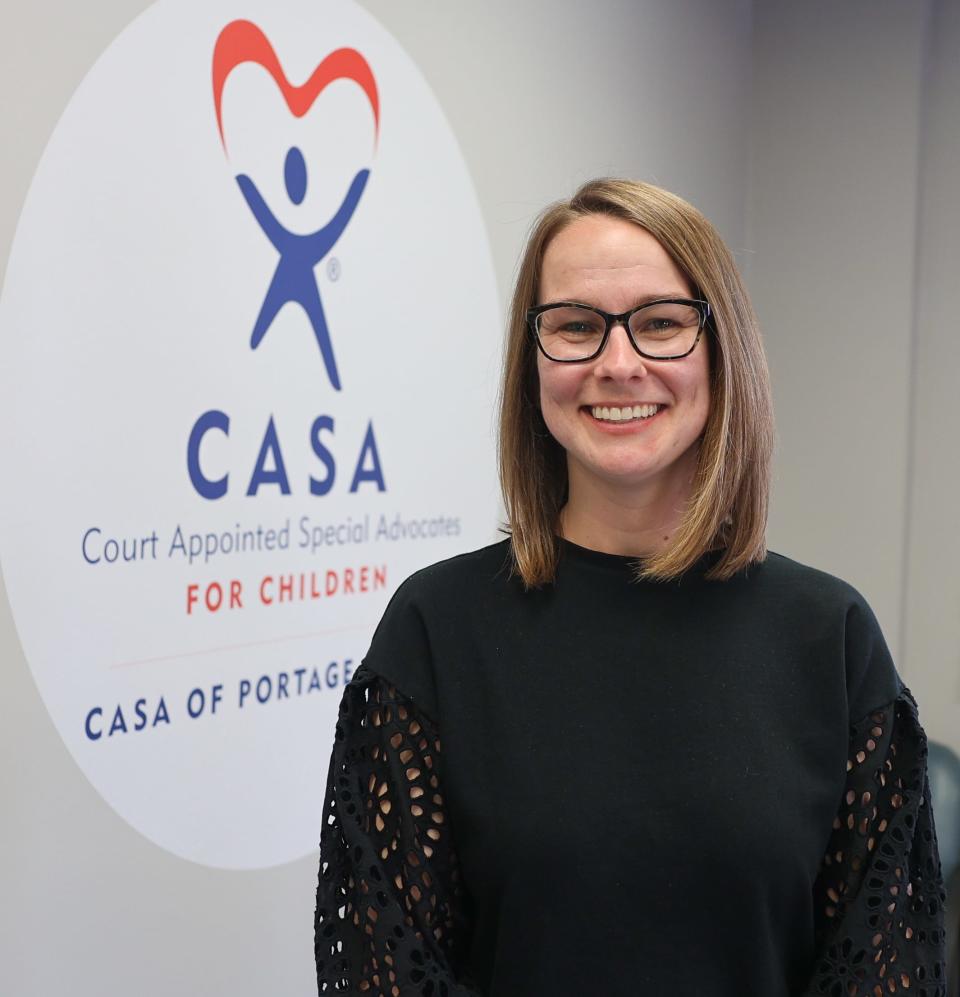Volunteers advocate for children caught up in Portage court system

With hundreds of children caught up in the court system in Portage County because of parental abuse, neglect, or dependency, state Rep. Gail Pavliga and Juvenile Judge Patricia Smith felt it was long past time those children had someone to speak up for them.
Enter the Court Appointed Special Advocates program. When Paviliga realized Portage County wasn't taking advantage of the program, she reached out to Doug Stevens, executive director of Ohio's CASA organization, to ask why there wasn't an operation running in her district.
More: Portage Commissioners OK tax breaks for 2 firms planning to invest $115M in new buildings
More: Portage sheriff seeking information on fatal shooting at 2017 house party
More: Former Ravenna schoolteacher delivers food to people in need
Pavliga spoke with Smith, who enthusiastically supported bringing the program to Portage, but noted that there wasn't any funding available. Pavliga subsequently secured money for the project by adding it to the state budget. Portage County's CASA program was on its way.
The group started working last September and in March, Smith conducted the swearing-in ceremony of their first class of 11 volunteer advocates. Within two weeks, the entire class was assigned to cases.
Volunteers are expected to conduct thorough investigations into a child's background and home life, independently from the court, in an effort to parse the best course of action for the child they're representing.
"That includes looking at school records; it could be counseling and treatment records, medical records; we're also looking at the parents backgrounds, their records," said Ann Walden, executive director of CASA of Portage County.
Because CASA serves children from birth until the age of 17, each case is different, but the goals are the same, according to Walden.
"We're working toward finding permanency for the children that we're working with, in whatever form that takes," Walden said.
In some instances that means reuniting a child with their family. When that isn't possible, adoption might become the next step. CASA's goal is providing stability.

Leslie Thomas, a graduate of CASA's first class of advocates, said that one of the keys to furnishing a sturdy foundation on which a child can build their life after leaving the court's jurisdiction is the presence of an advocate through the entirety of the court proceedings.
Judge Smith agrees. She said that children with CASA volunteers don't get moved from placement to placement as often. Job and Family Services has a heavy caseload, and they'll often work to find a new placement for a child as quickly as possible if the fit isn't right. Ideally, a CASA volunteer is able to step in and resolve issues with a placement instead of shuffling the kid around from place to place.
"We know the more we move a child," Smith said, "the worse off they are." She said that constantly shifting living situations results in children having a harder time with life in general.
"We don't want to develop more problems with children because of what we've done with them while they're in custody," Smith said.

Advocate training is extensive. Volunteers are required to complete 30 hours of pre-service training — 15 hours of which is held on Zoom, and the other 15 hours are conducted independently — and one court observation. After they've finished their initial training, and are sworn in and taking cases, their education is on-going. CASA mandates 12 hours of in-service training annually.
Advocates are also required to meet with the child they're representing once a month, at minimum.
"I've only been in contact with my child maybe five times, six, maybe," Thomas said, "but each time she opens up a little bit more, and is a little more comfortable being around me or talking to me."
Case length varies widely. When Job and Family Services files a complaint, parents might take corrective action quickly, Walden said. In other instances, it may take longer.
Juvenile cases have a life of two years, and if a resolution to the case can't be found in that period, CASA and Job and Family Services begins looking for more permanent placement options like a foster home, or another family member who can take custody.
Anyone can become a volunteer, as long as they're over 21 years old, and can pass a background check.
Thomas, for example, was a CPA until her recent retirement.
According to Smith, the program could use more male volunteers. Most of the people who apply to work with the program are women, she said, but a significant number of the children in custody are males.
The first step to becoming involved with CASA of Portage County is reaching out to Walden. From there, those interested can fill out an application that can be found online. After Walden receives an application, she sets up an interview with the volunteer-to-be.
"We talk a little bit, and we then start the process of scheduling a time for training," Walden said.
There is no set schedule for training. Walden said that CASA is aware that people signing up to volunteer have work, social lives and familial obligations. When she has a new group of applicants, she'll talk to them all, working to coordinate around everyone's schedule in a way that makes training accessible to everyone.
Currently, there are 18 new volunteers going through training. Upon completing their instruction, Portage County will have a total of 29 CASA volunteers ready to step in on behalf of a child. This rapid expansion necessitates the hiring of a coordinator to assist Walden in her duties. The national accreditation standards outlined by the national CASA organization dictates that one person can't be in charge of 30 or more volunteers.
Funding for the first year of operations are provided by the state and national CASA organizations, and in the second year they will provide 90% of funds. Walden is working on securing funding through the Victims of Crime Act, Smith said. She added that in the future, a branch of Portage County's CASA program will be a non-profit that will fundraise for money to support volunteer's efforts.
Smith said Doug Stevens of Ohio's CASA organizations, praised the Portage County team as his "rock star" program due to how quickly they've gotten up and running, and how many volunteers they have already. Smith said that it normally takes 12 to 18 months for a new program to begin operations.
An outpouring of community support has made their speedy expansion possible, Walden said. Portage County commissioners donated the office space in the Riddle Block while Job and Family Services donated the furniture.
Despite rapid growth, there is still an urgent need for CASA volunteers in Portage County. Each advocate only takes on one case at a time. Smith said that there are currently more than 300 kids in custody, and the county is already on track to have more than 200 cases for the year.
Being a volunteer is rewarding, Thomas said.
"Just making a connection with a child is a wonderful experience," she said. "Knowing that you're going to be a consistent, constant presence of support to them — I definitely think we're going to make an impact on that child's life."
Contact reporter Derek Kreider at dkreider@gannett.com
This article originally appeared on Record-Courier: Court appointed advocates for children operating in Portage County

